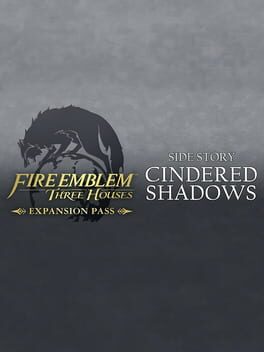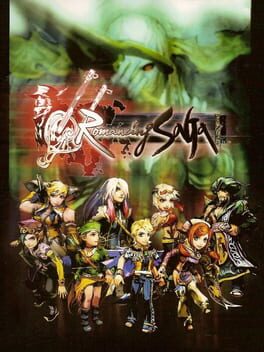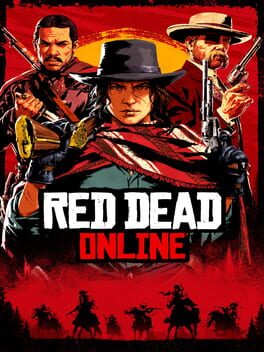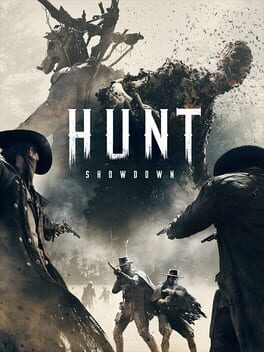Gentlefish
7 reviews liked by Gentlefish
Dragon's Dogma II
2024
In that primordial placeless origin, through the mist-veil of time, since man first airbrushed Merlin smoking a pipe on the side of a van, there, you can feel it in the noosphere, a moon-lit dream, The Dream, a call in the heart of the human soul. Some have seen some small part of this dream- The Legend of Zelda, The Elder Scrolls, Ultima, Dark Souls, Adventure, Dragon Quest, King's Field, Wizardry, among innumerable others, nameless here forevermore, all have failed to reach The Dream. Perhaps cruel circumstance chained them to Earthly bond, perhaps cowardice stayed their hand, perhaps they lacked the naivety and earnestness necessary to behold a waking dream. Whatever their individual situation, the results have always been, like Lion of Gripsholm Castle, a mutant, an aberration, at best a passing resemblance. Dragon's Dogma is The Dream, forged in the furnace of the heart, it is not visually plain- it is clean, it is not halfbaked- it is too goodly to exist totally in a world half-evil, it achieves the promise of videogames, and proves that creative endeavour above all else is the greatest goal humanity can strive for. it is the twinkle in the eye of Merlin smoking a pipe airbrushed on the side of a van.
Minstrel Song is an old skool rpg where you get into lots of fights with monsters to level up and learn techniques for your characters weapons as well as entirely new game mechanics, killing monsters is also the only way to advance the in game timer, the monsters will be replaced with stronger monsters at a rate faster than you will improve, on top that it will cause quests to time out, and new quests to become available, so actually you want to avoid combat as much as possible to keep the timer from moving forward and instead to focus on quests for character progression, only carefully incrementing it when you run out of things to do but monsters in the overworld spawn in huge numbers and are highly aggressive, so you can't totally avoid combat, but if you get into a fight you can just retreat to avoid advancing the timer, but retreating costs crucial resources so actually you need to run around like scooby doo with a trail of monsters chasing you while trying to progress quests, but the locations where you can find new quests are unmarked, and where you need to go to progress quests is unstated, so you need to run around the overworld getting chased by monsters like scooby doo so you can find quests to level up because there's no main quest, and you don't even know if you've done everything you can do before making the call to kill some monsters to advance the game clock, eventually you'll do this enough to get multiple quests that specifically tell you to go out and kill shitloads of monsters and they're really important so to do the most important quests you need to ignore everything you've learned about playing the game and potentially time out dozens of quests that you don't know how to do because they don't tell you where to go or what to do never mind the quests that you don't know about because they could be handed out by any of the dozens of NPCs who had nothing to say to you an hour ago, who are potentially in locations you haven't discovered because the only way to discover locations is either to talk to people or to recruit new party members, but you can only have a limited party size so to see if a new party member will give you a location (which they may not) you need to kick out an existing party member first if you are full, the removed party member will later reappear in potentially any one of the many pubs, one per city, scattered around the dozens of cities in the game, including ones you haven't discovered, after doing all that for a while the final boss shows up and you are probably not strong enough to kill him even with all that effort. This anti-lesson on game design could only be enjoyed by criminally deranged perverts.
Elden Ring
2022
1. imagine being a triple a videogame developer, you know what Fromsoft is capable of- the phrase "the Dark Souls of ... " rings in your heart; it is the tinnitus of your soul. But Fromsoft stays in the corner, gurning, keening, laughing at the end of sentences, this grants you a measure of peace. One day you come into work, and they're sitting at your desk. they own your fucking desk.
2. the greatest videogame adaptation of the works of Hieronymus Bosch
3. little guy in the foreground of landscape concept art simulator
4. the definitive answer to the question "would the Wanderer above the Sea of Fog by Caspar David Friedrich be improved by letting you throw fireballs at skeletons"
5. did Hidetaka Miyazaki come up with "The Loathsome Dung Eater" or did George R R Martin, or did they simply both announce the name out loud at the same time at their first meeting, before offering so much as a "hello"
6. with Bloodborne, they came for the shield guys, with Sekiro, they came for the dodge guys, with Elden Ring, they came for the Fox Only No Items Final Destination guys
7. Elden Ring is a 100 hour game that feels like a 200 hour game that feels like a 50 hour game
2. the greatest videogame adaptation of the works of Hieronymus Bosch
3. little guy in the foreground of landscape concept art simulator
4. the definitive answer to the question "would the Wanderer above the Sea of Fog by Caspar David Friedrich be improved by letting you throw fireballs at skeletons"
5. did Hidetaka Miyazaki come up with "The Loathsome Dung Eater" or did George R R Martin, or did they simply both announce the name out loud at the same time at their first meeting, before offering so much as a "hello"
6. with Bloodborne, they came for the shield guys, with Sekiro, they came for the dodge guys, with Elden Ring, they came for the Fox Only No Items Final Destination guys
7. Elden Ring is a 100 hour game that feels like a 200 hour game that feels like a 50 hour game
Red Dead Online
2019
Hunt: Showdown
2019
Contrary to what you may have heard, this game is not about tracking down monsters in the Louisiana bayou. It’s not even about hunters killing each other with old timey weapons. It’s about economics. Of course, it’s communicated in the language of monsters and gunfights, but the whirlpool of risk, reward, human psychology, and limited resources make it feel like an imaginative economic allegory. To outline the rules of the competition, maps have up to twelve players fighting for a maximum of four bounty tokens, with each boss monster dropping two. Players start out on the far edges of the map, and their goal is to locate a series of clues to reveal a boss’ lair, kill it, and then run to an extraction point. However, if everyone decided to queue as a team of three, half the teams in that match won’t be able to go home with a prize, and if you queued solo, the contention for the bounties is even more cutthroat. Not only do bosses not drop the tokens instantly, they alert everyone on the map when the harvesting process begins, marking the lair’s location. Gunshots ring across the entire map, crows and barking dogs signal movement, and after players pick up the bounty tokens, their general location can be seen by everyone else, who then set up ambushes to try and steal the reward. All these mechanics are oriented to ensure that players clash at every opportunity, and the ways that players plan around these systems is where some interesting psychology comes into play.
If you’re like me, you might have wondered “If players can be killed by the boss, are revealed by the harvesting process, and highlighted by carrying the bounty token, why bother being the one to go for the kill?”. Surely enough, that’s a common thought, and many players choose to quietly observe the bosses’ lair from afar and pick off would-be hunters, or wait in a central location until the harvesting has begun to capitalize as the others try to escape. Some people just pick an extraction point and hang there for the entire game, a slow but steady way to pick up some cash, both from killing hunters extracting their tokens and from those who just chicken out without a bounty. After all, players can run for extraction at any time, just taking the meager returns from killing generic enemies, and choosing not to risk their pricey loadout of weapons and tools. Since your character can be used in multiple rounds until they die, accruing useful skills and weaponry along the way, people might not want to risk their investment if things start to go south.
So, now you get the picture of the game’s economy: you have an incredibly risky strategy of moving right into the heart of conflict to kill a boss and get out, weighed against the safer path of essentially being a hyena, picking up the scraps and taking down wounded players in relative safety. However, just like a real economy, the balance of this risk and reward is constantly fluctuating. You’ll find yourself mentally keeping tabs on how many players you think are left in the game, since you’re never told how many have died, extracted, or were even in the game in the first place. You may see that one team is harvesting tokens, then hear gunshots in the distance, and know you killed one team on the way in, so you figure that you can get your bounty in relative safety. Sometimes you stumble across a boss’ lair in the first minute of a round, and the calculus flips to where you want to fight the boss immediately and frantically capitalize on your head start. It may seem like the gameplay is just about hunting monsters and shooting people, but this capacity for cleverness and planning, thoughtfulness and risk-taking, that’s what makes Hunt: Showdown a very special sort of experience.
...However, in-game economics and scarcity aren’t the only things you have to worry about, there’s the real world, and whether this game is worth your $40 is a bit harder to determine. As exciting as the thrill of the hunt can be, it’s still a game with 95% of its content in multiplayer, with the usual downsides. It’s reliant on unreliable servers, the groups you’re matched with, and the patience you have for the times where you hide in a bush for minutes on end, excitedly waiting for your chance at an ambush, only to be brained by someone 250 meters away. My personal experience wasn’t that great when playing solo, but when playing with a friend who’s a stealth game master, it hit some of the highest peaks I’ve had in multiplayer games in general. If you can find a patient friend who’s interested in the game, first of all, cherish them, and secondly, wait for a sale. Consider it a little practice for holding back on the trigger, waiting for the perfect moment to get yourself more than you bargained for.
If you’re like me, you might have wondered “If players can be killed by the boss, are revealed by the harvesting process, and highlighted by carrying the bounty token, why bother being the one to go for the kill?”. Surely enough, that’s a common thought, and many players choose to quietly observe the bosses’ lair from afar and pick off would-be hunters, or wait in a central location until the harvesting has begun to capitalize as the others try to escape. Some people just pick an extraction point and hang there for the entire game, a slow but steady way to pick up some cash, both from killing hunters extracting their tokens and from those who just chicken out without a bounty. After all, players can run for extraction at any time, just taking the meager returns from killing generic enemies, and choosing not to risk their pricey loadout of weapons and tools. Since your character can be used in multiple rounds until they die, accruing useful skills and weaponry along the way, people might not want to risk their investment if things start to go south.
So, now you get the picture of the game’s economy: you have an incredibly risky strategy of moving right into the heart of conflict to kill a boss and get out, weighed against the safer path of essentially being a hyena, picking up the scraps and taking down wounded players in relative safety. However, just like a real economy, the balance of this risk and reward is constantly fluctuating. You’ll find yourself mentally keeping tabs on how many players you think are left in the game, since you’re never told how many have died, extracted, or were even in the game in the first place. You may see that one team is harvesting tokens, then hear gunshots in the distance, and know you killed one team on the way in, so you figure that you can get your bounty in relative safety. Sometimes you stumble across a boss’ lair in the first minute of a round, and the calculus flips to where you want to fight the boss immediately and frantically capitalize on your head start. It may seem like the gameplay is just about hunting monsters and shooting people, but this capacity for cleverness and planning, thoughtfulness and risk-taking, that’s what makes Hunt: Showdown a very special sort of experience.
...However, in-game economics and scarcity aren’t the only things you have to worry about, there’s the real world, and whether this game is worth your $40 is a bit harder to determine. As exciting as the thrill of the hunt can be, it’s still a game with 95% of its content in multiplayer, with the usual downsides. It’s reliant on unreliable servers, the groups you’re matched with, and the patience you have for the times where you hide in a bush for minutes on end, excitedly waiting for your chance at an ambush, only to be brained by someone 250 meters away. My personal experience wasn’t that great when playing solo, but when playing with a friend who’s a stealth game master, it hit some of the highest peaks I’ve had in multiplayer games in general. If you can find a patient friend who’s interested in the game, first of all, cherish them, and secondly, wait for a sale. Consider it a little practice for holding back on the trigger, waiting for the perfect moment to get yourself more than you bargained for.






